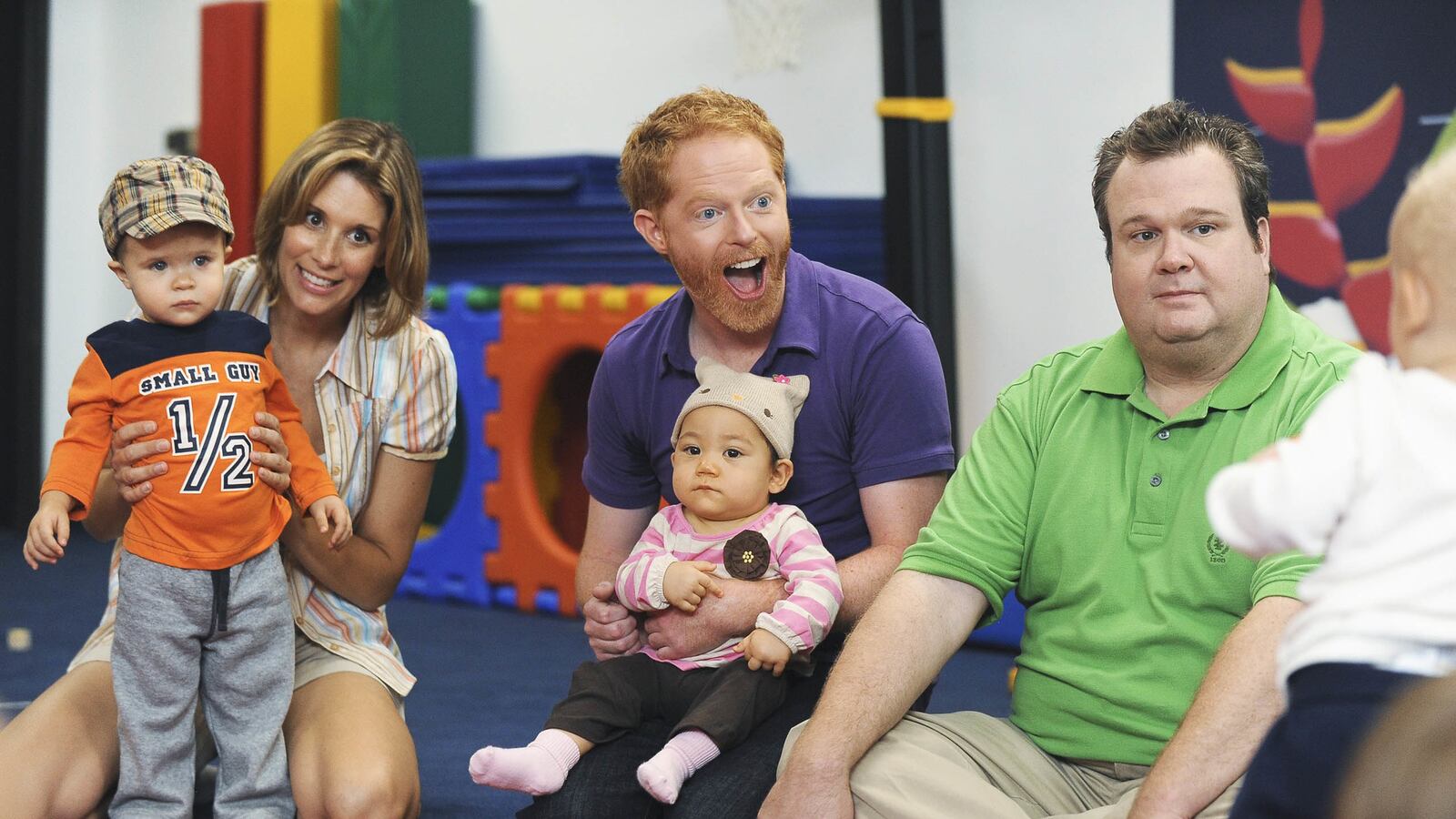There is something uniquely fascinating about the brain. With all due respect to nephrologists or gastroenterologists, the kidneys and intestines just don’t captivate our attention the way the soft mass of tissue riding in our skulls does. Given that our thoughts and feelings arise within the neurological flickers and connections contained there, the functions that make us us, the interest we have in this organ above all others makes sense.

I love learning about the brain. And I particularly love learning about my own.
A new study that’s being reported by researchers in Israel was therefore especially interesting to me.
Neuropsychologists there filmed new parents interacting with their children, then measured these parents’ neurological activity while scanning their brains as they watched the videos. New mothers showed increased activity in the emotional centers of the brain, whereas new fathers had more activity in the areas where cognitive functions like deciphering their child’s cry were located. What caught my eye is that they compared the brains of new mothers and fathers in opposite-sex relationships with those of gay men raising children, and found that the latter had brain changes similar to both moms and dads.
As a gay man who has adopted four children with my husband (I spend my days in a state of caffeinated bewilderment), I found this intriguing. I can certainly relate to the cognitive element, as I’m sure most new parents can. I’m learning to discern the “you need to take another crack at burping me” cry from the “I’m sitting in poop, you idiot” wail with my youngest; when one of my older children is playing with other kids her own age, I can tell her cries from the other children’s. Not being a mother myself, I can’t say for sure that I feel the same nurturing feelings that they do, but I’d certainly hope so.
According to Art Markman, professor of psychology at the University of Texas at Austin and author of Smart Change, these data suggest that kids in families like mine really are getting that kind of nurturing. I contacted Markman to get an additional perspective on the study from someone with more expertise in the field.
“The data suggest that children of gay parents end up just as well-adjusted as those in heterosexual couples,” Markman told me. “That means that children adopted by gay couples are getting the kind of nurturing they get from having a mom and a dad. That nurturing includes both a cognitive component and an emotional component.”
Though he cautions against drawing too many conclusions from this particular study, it is consistent with a growing body of evidence that shows children raised by same-sex parents thrive to the same degree that their peers in “traditional” families do.
Regarding the observations I make in my office, that is consistently the case with my own patients. I see many children whose parents are of the same gender, and there is no observable difference in the affection they display or the health and well-being of their kids. It’s because of similar observations and studies that the American Academy of Pediatrics has endorsed adoption by same-sex parents for more than a decade.
What’s interesting to consider is that parenting in a same-sex relationship has a perceptible effect on my brain activity, though this stands to reason. If London cabdrivers’ brains change because of their need to navigate a complex city from memory, then mine can change from seeing my smallest kids’ smile for the first time. That our brains would adapt to the novel parenting arrangement makes sense.
Markman suggests that a key question remains whether single parents would show the same kind of brain activity that gay men are exhibiting. “That would suggest that having to play both roles as a parent influences the brain areas that are engaged in parenting.”
All good parents strive to meet their children’s needs the best way possible. New moms and dads of every stripe want their kids to grow up healthy and happy and successful. With attention and guidance, we mold and shape who they are, and it’s fascinating to see the ways they shape us in return. The changes with gay dads may look more like a combination of moms and dads than those of heterosexual fathers alone, but in the end we all love our children just the same.





